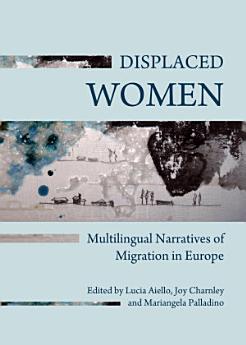Displaced Women: Multilingual Narratives of Migration in Europe
About this ebook
About the author
Joy Charnley works particularly in the field of French-Swiss literature, and has published widely on authors such as Alice Rivaz, Yvette Z’Graggen and Anne-Lise Grobéty. She co-founded the Centre for Swiss Cultural Studies in Glasgow in 1997, and has been involved in many collaborative initiatives on Switzerland, including conferences, symposiums, and edited volumes. She is currently collaborating with Barbara Burns at the University of Glasgow on a series of seminars entitled ‘Switzerland in Dialogue’.
Mariangela Palladino is Lecturer in English Studies at the University of Keele, UK. Her research interests lie at the intersection of Postcolonial literatures and cultures, diaspora, migration studies, and narratology. She has published in Modern Fiction Studies; Intervention: International Journal of Postcolonial Studies; the Journal of South African and American Studies, and the Journal of Postcolonial Writing. Forthcoming publications include her monograph, The Forms of Ethics (Rodopi); and a co-edited collection The Globalization of Space: Foucault and Heterotopia (Pickering and Chatto).





